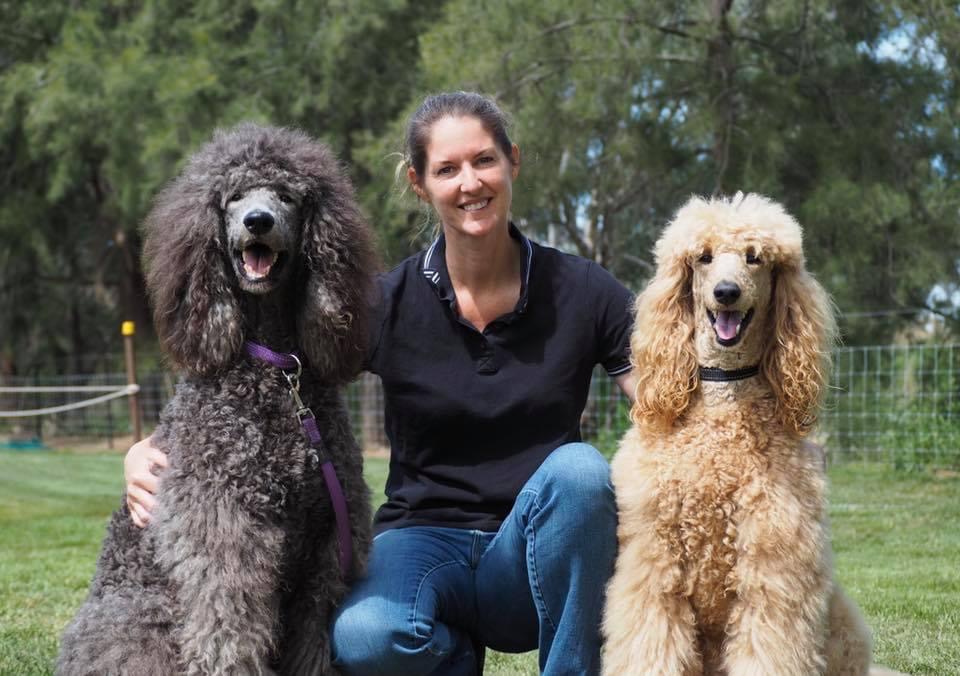Course Details
The types of dogs that will be best suited to joining us in this class are those that are naturally quite independent, appear to have very little interest in “work”, appear to have a very short attention-span when it comes to “work”, are more focused on aspects of the environment than they are on their human, and/or appear unenthusiastic about training / working / trialling; in summary, not your typical sports dog!
This class came about because some of us really enjoy training and/or competing, but we are not working with “work-oriented” dogs; our dogs have been chosen for different reasons……. maybe we need a dog that is “easy to live with” or doesn’t require a lot of work/exercise; or maybe our dog is a rescue or came to us from a family member or friend who could no longer care for them; or maybe our dog genetically “should have the whole package for dog sports” but doesn’t display the innate drive that we expected; or maybe we just have a passion for a breed / type that hasn’t been genetically selected for innate traits conducive to training in handler-directed dog sports. For those of us living with these less “work-oriented” dogs, it can be difficult to know how to proceed when our dog doesn’t respond to training in the same way as our previous dog/s, or doesn’t improve in response to common training strategies; we may even become frustrated at times when our dog doesn’t show the same enthusiasm for work that we see in other dogs in social media videos, or at our in-person classes.
Our goal in this class is to improve engagement, motivation, enthusiasm, perseverance, resilience, and focus, utilizing strategies that are specifically tailored to be effective with dogs that are not the typical “work-oriented” sport dog.
As we progress through the class, we will learn how to implement strategies that will directly lead to more successful and more enjoyable training sessions (and competition performances) for both us and our dog. These approaches will not only lead to increased enthusiasm and reliability, but will also result in improving our dog's ability to undertake longer periods of engaged work in the absence of treats / toys.
Consider joining this class if any of the following describes your dog:
- Not innately driven to “work” / train.
- Naturally independent.
- Not innately biddable.
- Appears unenthusiastic about “training”.
- Seems to lose interest in work very quickly.
- Displays limited ability to persist in training challenges.
- Rarely works in a fast or intense way in training or when competing.
- Gets easily distracted by “anything” (e.g. other sights, smells, sounds, etc.)
- Displays poorer performances when the treats and toys are not available.
This class is suited to anyone interested in building a stronger working / training relationship with their dog, regardless of whether the team is training for fun, or aiming to compete in dog sports.
The Gold and Silver spots will likely include teams with an interest in obedience, rally, tricks, musical freestyle, nosework, agility, and more, however teams who are not interested in competing in a sport are also very welcome.
Teaching Approach
Note: There is a teaching assistant (TA) for this class. This means that all bronze students will be able to access individual feedback on all of their videos from our wonderful TA, Jennie Murphy. To access this feedback please join the private FB group after registering for this class.
Lectures will be released in two blocks each week: one at the start of the week and one mid-week. There will be practical exercises introduced weekly, with lots of flexibility for Gold level students to progress through the work at their own pace, selecting the exercises that most suit their dog and their own end goals.
All students are encouraged to follow along with the Gold and Silver students’ forums to get the most benefit from this class. This is where you will see the strategies applied in a real-life setting, with appropriate adjustments made as required to suit the needs of each individual dog and handler.
The content of this class is presented in written form, with the occasional diagram or chart to support the written information. Practical exercises are often supported with short video demonstrations. The videos may include audio voice-over but are always supported with a detailed written description.
Sharon’s approach is very practical and flexible. Her aim when teaching is to help students understand why their dog is performing the current behavioral responses and how, through changing our approach to training, we can increase our dog's enjoyment, enthusiasm, and desire to train. Students typically say that their increased understanding of the existing behaviors significantly improves their relationship with their dog and reduces their own feelings of frustration.
 Instructor: Sharon Carroll
Instructor: Sharon CarrollSharon (she/her) has been a professional animal trainer for 30 years. She has been both a presenter and trainer in a range of animal shows, and currently operates, a dog training and behaviour consulting business based in Newcastle, Australia. (Click here for full bio and to view Sharon's upcoming courses.)


